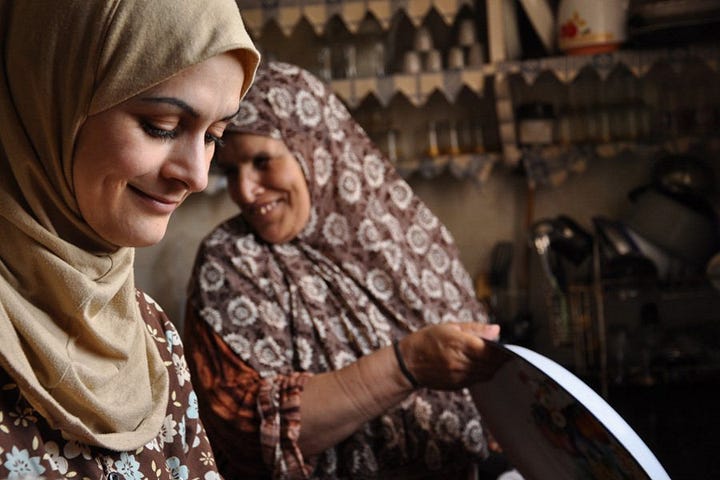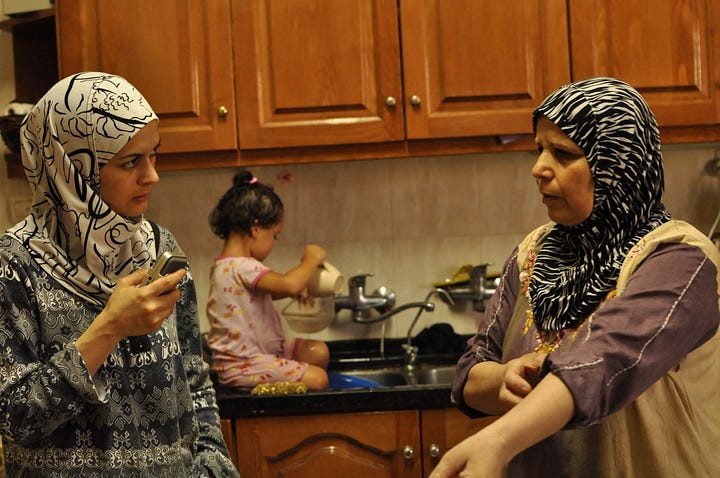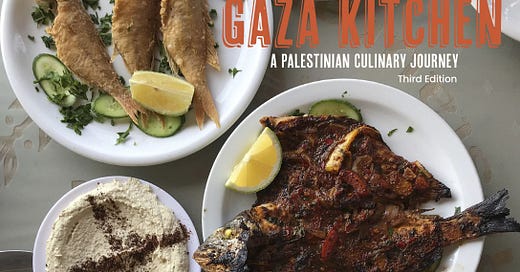Bon appetit. Saha.
I’m planning a fundraiser meal for Gaza, a thing I’ve done intermittently for various Palestine causes over the last few years.
I’m looking through my cookery books and especially the one devoted to the food and the women of Gaza. Gazan food is a bit different from the food of the rest of Palestine. A beautiful way with fish (West Bank Palestinians can’t get to the sea), and a trinity of chilli and dill and lemon that gives their version of everything such a sharp Gazan twist.
The book was published in 2012 and it outlines the lives of the women who contributed, their daily struggles with poverty, shortages, UN rations, electricity cuts. I love the book because those kitchens, those faces, those dishes are so like kitchens I know in the West Bank, the women I’ve cooked with over the years.


The women in the Gaza book are twelve years older now. I expect they wish they could return to the difficulties they faced in 2012. I expect they wish they were still in those kitchens. More than 85% of Gazans have been displaced from their homes. I expect they wish they had food to cook at all. What else they will have experienced I need not say.
I’ve loved cooking Palestinian food for people here in the UK because I like to share with my guests the idea that Palestine is not simply a problem but a place of beauty and normality, where life is conducted with the grace and intensity that comes from enduring through difficulty.
Through food, through embroidery, Palestinian women carry their culture, their lives carefully into the future, like water slopping in a shallow bowl. Now I see genocide as this: the wanton destruction of everything that women have spent their lives creating, literally the destruction in seconds of the painstaking lifelong labour of women to bring life into their world and to protect it.
I’m not sure how this meal will be. How can I tell my guests any more that they are sharing the culture of the place we meet in honour of, when it is being destroyed?
Bon appetit. Saha.




